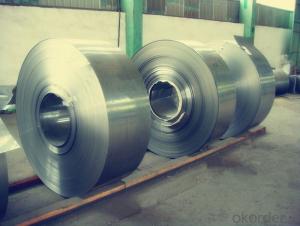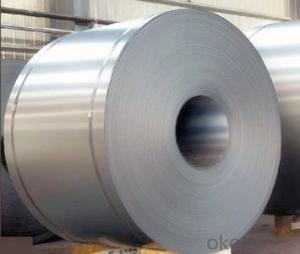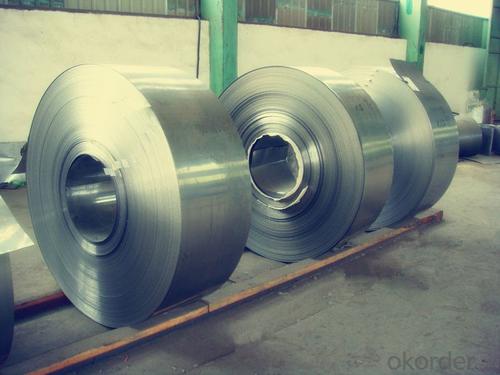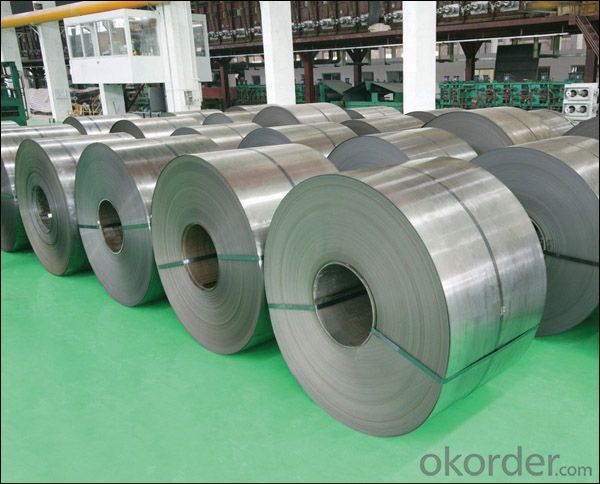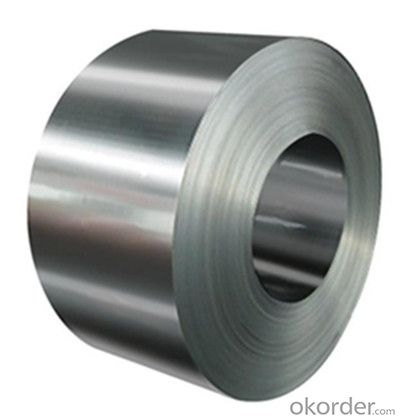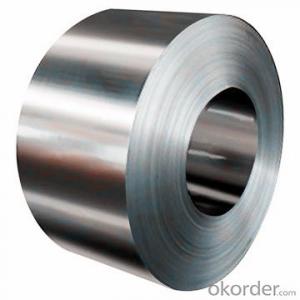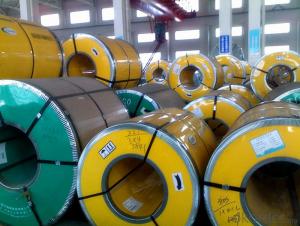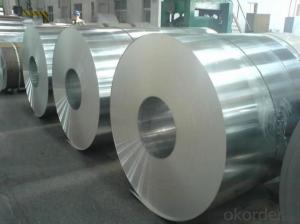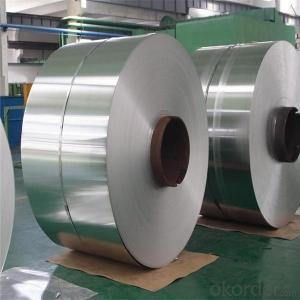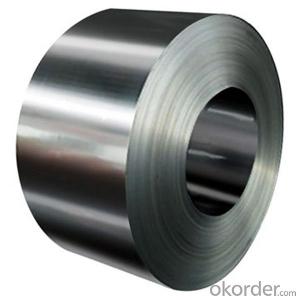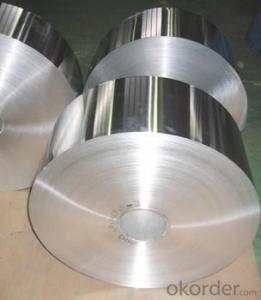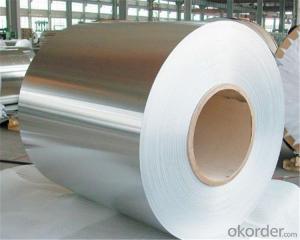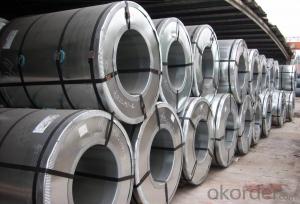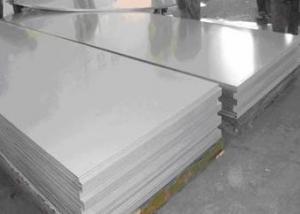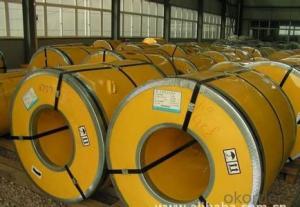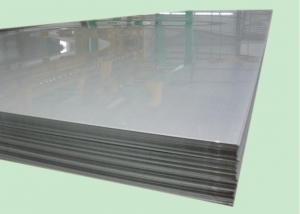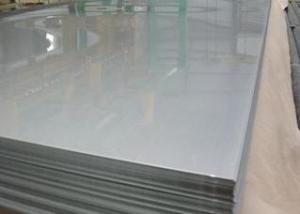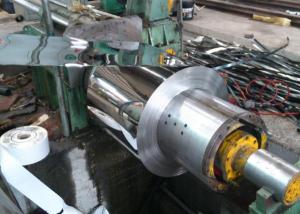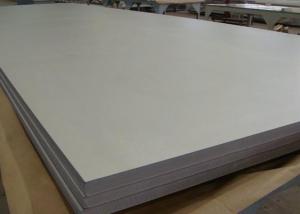Stainless Steel Coil All Specifications HR/CR 201/304/316/430
- Loading Port:
- Guangzhou
- Payment Terms:
- TT OR LC
- Min Order Qty:
- 100 m.t.
- Supply Capability:
- 20000 m.t./month
OKorder Service Pledge
OKorder Financial Service
You Might Also Like
1. | Item | STAINLESS STEEL COIL | ||
2. | Standard | ASTM,AISI,GB,JIS,SUS,EN,DIN,etc. | ||
3. |
Material | 200 series | 300 series | 400 series |
201,202 | 300,301,304,304L,309S,310S,316Ti,316L, 317L,321,329,329LA,329LD | 409,410,430,430LX,600,601 | ||
4. |
Specification | Thickness | 0.1mm-200mm | |
Width | 1000mm-3000mm | |||
Length | 1m-12m | |||
5. | Surface | No.1,No.4,No.5,BA,2B,hair line,embossed,mirror finish,etc | ||
6. | Application | Stainless steel coils s are widely used in: 1:Chemical industry equipment,industrial tanks 2:Medical instruments,tableware,kitchen utensil,kitchen ware. 3:Architectural purpose,milk or food processing facilities. 4:Hospital equipment,interior exterior decoration for building 5:Architectural purposes,escalators,kitchen ware,vehicles. Or they can be made as your requirement. | ||
7. | Package | Standard export package. | ||
8. | Export to | Asia,Africa,Europe,Middle East,South and North America,Oceania,etc | ||
9. | Contact | please feel free to contact CNBM | ||
- Q: Can stainless steel strips be used in the production of watches?
- Yes, stainless steel strips can be used in the production of watches. Stainless steel is a popular choice for watch cases and straps due to its durability, corrosion resistance, and aesthetic appeal. It provides a sleek and polished finish, making it suitable for both traditional and modern watch designs.
- Q: Can stainless steel strips be used in oil refineries?
- Yes, stainless steel strips can be used in oil refineries. Stainless steel is highly resistant to corrosion and can withstand the harsh conditions and corrosive chemicals present in oil refining processes. It is widely used in various applications within oil refineries, including piping, tanks, heat exchangers, and other equipment.
- Q: What are the different grades available in 111 stainless steel strips?
- There are different grades available in 111 stainless steel strips, including grade 301, grade 304, and grade 316.
- Q: How do you determine the weight of a stainless steel strip?
- To determine the weight of a stainless steel strip, you need to multiply its length by its width and thickness, and then multiply that product by the density of stainless steel.
- Q: How do stainless steel strips perform in high humidity environments?
- In high humidity environments, stainless steel strips excel. Their built-in resistance to corrosion and rust makes them perfect for use in humid conditions. The presence of chromium in stainless steel creates a protective layer on the surface, preventing moisture from causing harm. This protective layer, called the passive film, is capable of self-repair, ensuring long-lasting durability even in high humidity environments. Moreover, stainless steel strips are highly resistant to pitting and crevice corrosion, which are commonly found in humid conditions. As a result, stainless steel strips are the reliable and preferred choice for various applications, including marine environments, chemical processing plants, and outdoor structures that are subject to high humidity.
- Q: What are the recommended storage conditions for 111 stainless steel strips?
- The recommended storage conditions for 111 stainless steel strips are as follows: 1. Temperature: It is recommended to store stainless steel strips in a controlled environment with a temperature range between 20°C (68°F) and 25°C (77°F). Extreme temperature fluctuations should be avoided as they can cause thermal expansion or contraction, leading to potential warping or distortion of the strips. 2. Humidity: The ideal humidity level for storing stainless steel strips is around 50%. High humidity can promote corrosion, while low humidity can cause the strips to become brittle. To maintain optimal conditions, it is advisable to store the strips in a dry location, away from moisture sources. 3. Ventilation: Adequate ventilation is crucial to prevent the accumulation of moisture or condensation on the stainless steel strips. Storing them in a well-ventilated area helps to minimize the risk of corrosion and maintain the quality of the material. 4. Protection: Stainless steel strips should be protected from exposure to chemicals, corrosive substances, and direct sunlight. It is recommended to store them in a clean and dry environment, free from any potentially damaging contaminants. Additionally, it is advisable to cover the strips with a protective layer, such as plastic or paper, to prevent scratches or surface damage. 5. Organization: Proper organization and storage practices are essential to prevent damage and facilitate easy access to the stainless steel strips. They should be stored in a horizontal position, preferably on pallets or racks, to avoid bending or warping. Labeling each strip with relevant information, such as grade, dimensions, and manufacturing date, can aid in efficient inventory management. By following these recommended storage conditions, the longevity and quality of the stainless steel strips can be ensured, minimizing the risk of corrosion, distortion, or other forms of damage.
- Q: Can stainless steel strips be bent or folded without cracking?
- Yes, stainless steel strips can be bent or folded without cracking. Stainless steel is known for its excellent ductility and formability, which means it can be easily manipulated into various shapes without breaking. However, it is important to note that the bend radius, or the tightness of the bend, should be within the recommended limits to avoid cracking or damaging the material. Additionally, the type and thickness of the stainless steel strip can also impact its bendability, with thinner strips generally being more flexible. Overall, stainless steel strips can undergo bending or folding processes without cracking if proper techniques and parameters are followed.
- Q: What are the common uses of stainless steel strips in the pulp and paper industry?
- The utilization of stainless steel strips is widespread in the pulp and paper industry owing to their remarkable characteristics and adaptability. Below are several typical applications of stainless steel strips in this sector: 1. Screens and filters: In various stages of the papermaking process, screens and filters made from stainless steel strips are employed. These aids in eliminating impurities and undesired particles from the pulp, guaranteeing the production of a top-notch final product. 2. Doctor blades: The manufacture of doctor blades also relies on the use of stainless steel strips. Doctor blades are critical components of paper machines as they remove excess water and chemicals from the paper during the drying process. The longevity and efficient performance of doctor blades are ensured by the corrosion resistance and durability of stainless steel. 3. Rollers and shafts: The creation of rollers and shafts utilized in paper machines frequently involves stainless steel strips. These rollers and shafts have a vital role in guiding the paper through different production stages, including drying, coating, and printing. Stainless steel's high strength and resistance to wear make it an excellent choice for these purposes. 4. Wires and mesh: Extensive usage of stainless steel strips can be observed in the production of wires and mesh used in paper machines. These wires and mesh aid in the formation and transportation of paper fibers, ensuring proper drainage and consistency. Stainless steel's corrosion resistance guarantees the durability and good condition of the wires and mesh, even when exposed to chemicals and moisture. 5. Pipelines and fittings: The construction of pipelines and fittings used for the transportation of fluids and chemicals within the pulp and paper industry also involves the application of stainless steel strips. Stainless steel's resistance to corrosion and high temperatures makes it a dependable choice for these applications, ensuring the safe and efficient flow of liquids throughout the production process. In conclusion, the durability, corrosion resistance, and versatility of stainless steel strips render them indispensable in the pulp and paper industry. From screens and filters to doctor blades and rollers, stainless steel strips play a pivotal role in ensuring smooth operations and the production of high-quality paper.
- Q: Are stainless steel strips suitable for architectural mesh applications?
- Stainless steel strips prove to be an excellent fit for architectural mesh applications. Renowned for its durability and resistance against corrosion, stainless steel emerges as the optimal choice for outdoor or heavily trafficked areas. Its remarkable strength and stability, coupled with its flexibility in design and installation, make it an ideal selection. Moreover, stainless steel mesh not only ensures security and privacy but also permits airflow and visibility. With its alluring aesthetics and practicality, stainless steel strips become the ultimate option for architectural mesh applications.
- Q: What are the different types of edge finishes available for stainless steel strips?
- There are several different types of edge finishes available for stainless steel strips, each providing a unique aesthetic and functional effect. 1. Mill Edge: This is the most common type of edge finish for stainless steel strips. It is produced during the hot rolling process and has a straight, slightly rounded edge. Mill edge is suitable for most applications and is often the default choice for stainless steel strips. 2. Slit Edge: Slit edge finish is achieved by cutting the stainless steel strip along its length, resulting in two parallel edges. This type of finish is commonly used when the strip needs to be further processed or fabricated, as it provides a clean and uniform edge. 3. Deburred Edge: Deburring is the process of removing any burrs or sharp edges from the stainless steel strip. This finish is achieved through mechanical or chemical means and is particularly important for applications where safety and handling are critical, such as food processing or medical equipment. 4. Rounded Edge: Also known as a rolled edge, this finish is achieved by rounding the edges of the stainless steel strip. It offers a smooth and safe edge, which is beneficial in applications where the strip will be handled frequently or come into contact with human skin. 5. Beveled Edge: A beveled edge finish involves cutting a chamfer or angle along the edge of the stainless steel strip. This type of finish is often used for decorative purposes or when joining multiple strips together. It provides a visually appealing transition between surfaces and can help minimize sharp edges. 6. Polished Edge: A polished edge finish involves buffing or polishing the edge of the stainless steel strip to create a smooth and shiny surface. This finish is commonly used in applications where aesthetics are important, such as architectural or interior design elements. 7. Brushed Edge: Brushed edge finish is achieved by brushing the edge of the stainless steel strip with abrasive materials to create a textured or matte surface. This finish is often chosen for its unique appearance and can help mask any imperfections or scratches on the edge. Overall, the choice of edge finish for stainless steel strips depends on the specific requirements of the application, including aesthetics, functionality, and safety considerations. It is important to carefully consider the intended use and consult with experts to select the most appropriate edge finish for your stainless steel strip.
Send your message to us
Stainless Steel Coil All Specifications HR/CR 201/304/316/430
- Loading Port:
- Guangzhou
- Payment Terms:
- TT OR LC
- Min Order Qty:
- 100 m.t.
- Supply Capability:
- 20000 m.t./month
OKorder Service Pledge
OKorder Financial Service
Similar products
Hot products
Hot Searches
Related keywords
